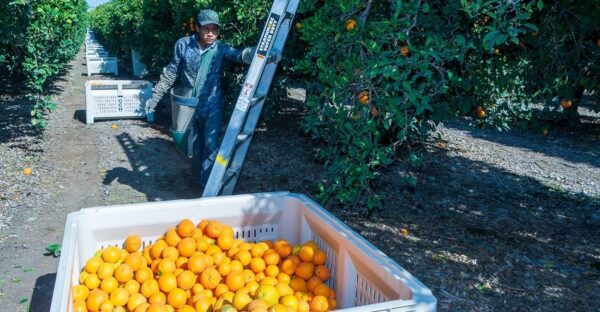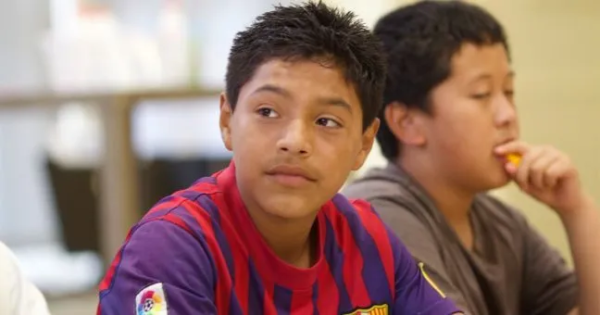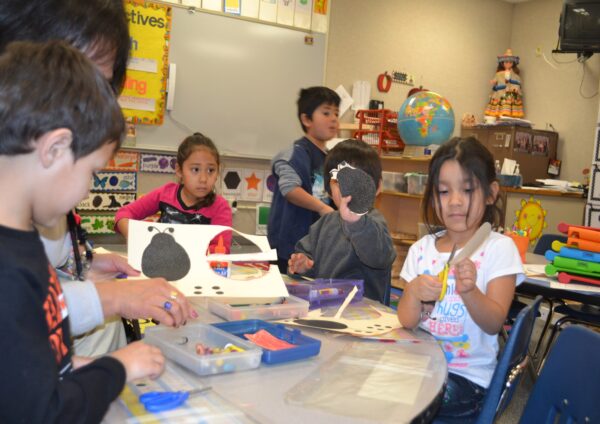Retrospective: Writing with Migrant Students 10 Years Ago
Ten years ago, following my assemblies at a rural school in California, I was asked to spend an hour with a small group of Migrant students. They ranged widely in ages and still spoke only Spanish. The idea was for them to tell me about, then write about, their lives. Memories of their personal stories and their academic challenges stayed with me and inspired far more organized, pedagogically sound workshops since. (Next post: a description of my most recent multimedia writing project for English learners.) But here is a look back on a powerful experience with Migrant students.
[Journal notes from Spring, 2014]
In a tiny farm town near Dinuba, CA (Tulare Co.), I was privileged to lead a writing workshop for Migrant students, grades 4-8. My goal was to get them to write in vivid detail about a work or life experience unique to their background. But many did not accept that their lives were worth writing about. Some appeared embarrassed about their families’ Migrant status. Their parents’ wages were low, the conditions hard and the work only seasonal. And in their community, 95% Hispanic, most all families seemed to already know all about farm labor.
My first job was to convince the students that outside their tiny community of Monson-Sultana Elementary School–a K-8th grade campus surrounded by orange groves and apple orchards–many people would find their life experiences interesting. I tried quoting César Chávez:

“Your [parents’] sweat and sacrifice put food on the table of millions of people across the nation and around the world.”
Silence. That statement seemed to get everyone’s attention. I said that many people in the broader society don’t know what goes into agricultural production. “We think oranges come from the supermarket,” I told them. “We think milk comes in containers and cheese from plastic wrappers. And you’re going to meet more people like me as your horizons broaden. When you go to college, you will meet people from the city, people from other states, even people from foreign countries like Korea and China. They will take an interest in the work your family provides. So never feel ashamed of your family. Feel proud of your families’ contributions to society!”

That seemed to do the trick. They became focused on learning how to describe–in English–what it’s like to work in an orange packing plant. We brainstormed details that readers could see, feel, taste, smell and hear. They described the hairnets and rubber gloves workers must wear in the plant, the high or low temperatures inside the building, the hard cement floor, the smell of rotten orange juice since some of the bounced-around oranges are already over-ripe. They described the oranges rolling by on a conveyor belt, how workers separate them according to size, to crate them and often lift and carry the full crates.
I asked them how the workers got paid, and they knew: either by hourly wage (around $8) or “contrato,” i.e. according to pieces or crates processed. Contrato, they said, was preferable; their parents earned more by working quickly. They described the smells of meals coming from the break room, the smell of beans, home-made tortillas and the machacudos that the workers brought with them. I told them that I needed them to define machacudo (a mashed combination of egg and beans). We talked of ways to present Spanish words in their writing, how to italicize foreign words, how to define the terms by paraphrasing them or using footnotes, asterisks or even glossaries.

Teachers often wonder how their students will turn out, what the future will hold for them. Todd Canterbury, a Migrant coordinator who has worked in Tulare Co. for many years, had this to say about their life trajectory. “Some of these Migrant kids grow up driven and really hungry to succeed. They wind up at colleges like UC Merced, Cal State Bakersfield, even Berkeley or Yale. I’ve seen some of them enter professions and come back to this area. Some of them now earn a lot more than I do. It’s as if their experiences growing up made them that much more determined and focused.”

Looking around at my workshop’s crop of Migrant students, I wondered which ones would go on to do what. An 8th grade boy, I later learned, had been exposed to environmental lead poisoning in Mexico. His prospects weren’t good as he still struggled with basic skills like reading and spelling. The 5th grade girl with the glasses, on the other hand, had skills and a quiet wisdom about her that suggested she was college bound. The bright-eyed 4th grade boy was still shaky when it came to writing all but his name, but conceptually he understood everything I presented and he contributed insights verbally that were as keen as any I’d heard. Future labor lawyers, teachers, psychologists? Migrant kids do bring special insights to the table. And these kids, I’m hoping, will be that much more effective at describing their experiences to the broader world.
